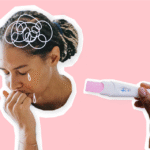Menopause is a natural stage for women, and each woman may experience it differently. What are the most common symptoms and recommendations for navigating this phase?
“Talking about menopause is still a taboo topic that can cause embarrassment for many women or intimidate men. Furthermore, there is misinformation on social media. When we talk about how to cope with menopause, it’s essential to understand what it’s all about,” says psychologist Lea Echeverría.
“Menopause is not just a women’s issue; it’s a social reality that addresses deeper issues of gender equality and rights. Historically, women’s health issues, including menopause, have been marginalized or ignored, reflecting broader disparities in healthcare access and treatment,” explains Talia Leibovitz, a professor at the Department of Information and Communication Sciences at the Universitat Oberta de Catalunya (UOC).
As part of her initiative to raise awareness on this topic, Leibovitz created a free app called Kala, one of eight finalist projects in the latest edition of SpinUOC, the university’s annual entrepreneurship program. This app provides detailed information on each of the symptoms and clarifies some ideas related to these changes in women.
What happens to the body during menopause?
Menopause is a normal life process and occurs as we age. “But perhaps the word aging isn’t always well received. It seems that, sometimes, the term evokes fear. However, it’s a process we can’t avoid,” says Echeverría.
Mónica Rosales, a gynecologist at Camp 3 Zunil, part of the Guatemalan Social Security Institute, explains that menopause is confirmed when women have not menstruated for two full years. Climacteric is the transition that occurs before menopause and is a stage that lasts almost five years, representing different changes. The average age of menopause is between 40 and 59 years.
The menopause period is also called perimenopause. During this time, the ovaries produce fewer hormones, such as estrogen and progesterone. These are the hormones that regulate the menstrual cycle; that is, without these hormones, the body no longer releases an egg each month.
The doctor suggests eating a balanced diet and exercising regularly, given all the hormonal changes. It’s also important to avoid alcohol, drugs, tobacco, or any other substance that can disrupt the body.
During menopause, weight gain can be more likely, so exercise should be part of your lifestyle. Reducing stress is another recommendation.
Treatments
Some women seek medical attention for menopausal symptoms, but others tolerate the changes or simply experience no discomfort.
“There are patients who can improve by taking isoflavones (an estrogen-like substance produced by some plants, such as soy). This is a natural way to help the body,” Rosales says. The doctor also comments that, depending on the patient, hormone replacement therapy, which acts more quickly, may be recommended for some.
Replacement therapy is also recommended for women facing surgical menopause, such as those undergoing a hysterectomy (a major surgery that involves removing a woman’s uterus) and those having their ovaries removed. “It’s important to assess each individual’s case because some of the implications of using this therapy are that, in some cases, it’s linked to cancer or cardiovascular problems,” Rosales adds.
What are the symptoms of climacteric and menopause?
Some women experience various discomforts such as the following:
- Irregular menstrual periods
- Hot flashes or heat, are caused by the decrease in estrogen and everyone experiences it.
- Changes in mood
- Decreased fertility
- Changes in sexual desire
- Loss of bone density
- Reducing estrogen levels can cause unfavorable changes in cholesterol levels.s
Myths and doubts about menopause
Psychologist Lea Echeverría discusses the main beliefs surrounding menopause. She clarifies that during this process, there will be emotional and cognitive changes, which are important to understand as part of the process.
- Support networks can help ease the burden because women feel heard and comforted. Others may need psychological support during this stage.
- “My useful life as a woman has come to an end.” This is a myth; no woman ceases to be useful because of her ability to menstruate, her sexual capacity, or because she is or isn’t a mother, wife, widow, single, or other definitions. We are useful to the extent that we understand productivity. In every process of life, when there is love from family, partners, or friends, but primarily from ourselves, we learn to treat ourselves gently and rebuild or often reinvent ourselves with new stages of life. This will bring back intimate moments and allow us to enjoy this new process with love, respect, and harmony.
- Menopause is a gradual process that can last several years. It won’t be fully reached until you have had a period of 12 to 24 months. During this time, it’s recommended to continue using birth control if you don’t want to get pregnant.
- Menopause cannot be prevented or avoided.
- There are no treatments for menopause, but there are ways to control some symptoms.
- You can have quality of life during menopause.





















+ There are no comments
Add yours